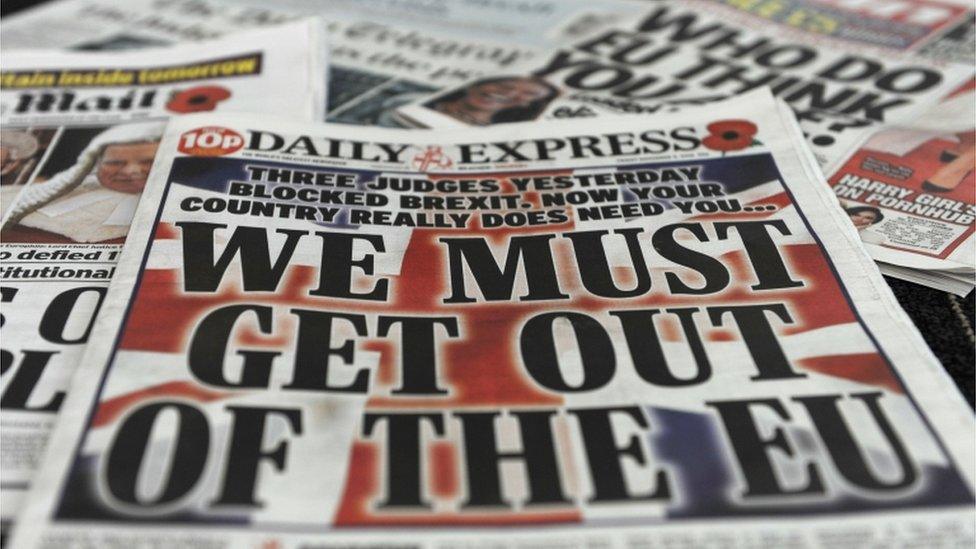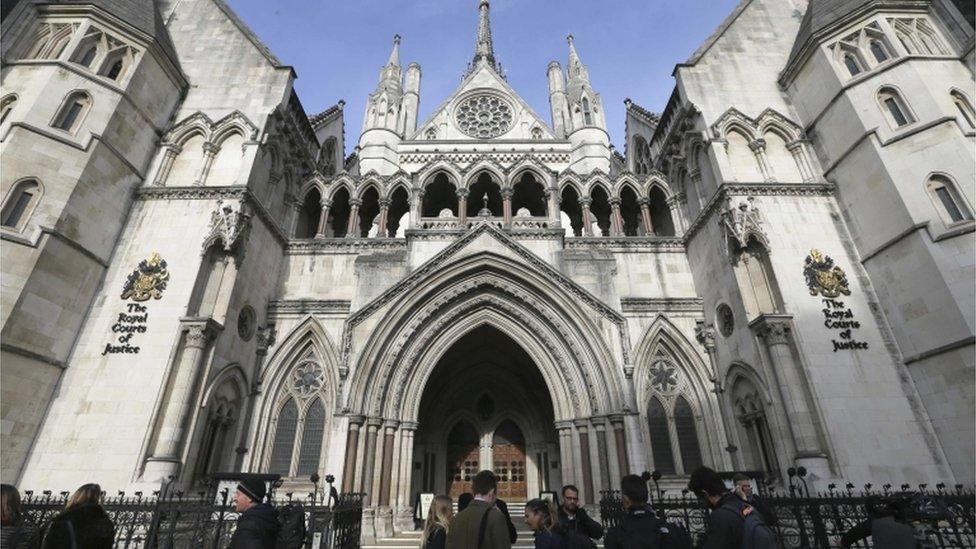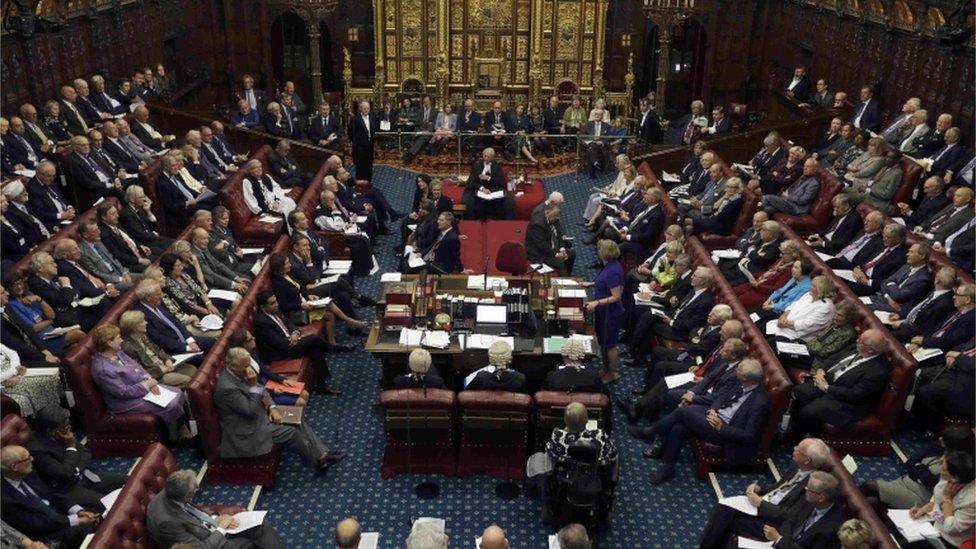Could pro-Remain MPs and peers scupper Brexit?
- Published

Some newspapers reacted with fury to the High Court ruling
A High Court ruling that Parliament - not the government alone - can trigger Article 50 threatens to delay Theresa May's timetable for leaving the EU, but could it spell the end for Brexit altogether?
Downing Street says it is confident that the Supreme Court will overrule the High Court and allow ministers, rather than MPs, to decide when to begin the formal process of leaving the EU.
But there is no evidence that government lawyers have yet amassed new arguments that might persuade the highest court in the land that the three eminent judges reached the wrong conclusion on Thursday.
So if that ruling stands, then the relevant secretary of state, David Davis - in charge of the process of exiting the EU - has said his presumption is that an Act of Parliament would be required before triggering Article 50 of the Lisbon Treaty. No 10 has said that's the 'logical conclusion' of the ruling, too.
Incidentally a former Conservative leader - Iain Duncan Smith - disagrees, and believes a straightforward vote of MPs would satisfy the courts.
But let's assume government ministers are right.
Could the mere act of consulting largely pro-Remain MPs scupper Brexit?
Well, no.

The High Court ruled against the government
Although the former chancellor Ken Clarke and the former Lib Dem leader Nick Clegg have told the BBC that they are prepared to vote against invoking Article 50, enough Remainers are saying they would respect the result of the referendum and vote to start the process of leaving the EU. The government would not lose this vote.
More likely is delay - rather than destruction - of Brexit.
But the opportunities for delay depend in part on the form any legislation would take.
Some pro-Brexit politicians are urging the government to come up with a simple one-line bill triggering Article 50.
Second referendum
The shorter and simpler the legislation, the more difficult it would be for Remainers to put forward elaborate amendments attempting to tie the government's hands in subsequent negotiations with the EU.
The former attorney general Dominic Grieve reckons that amendments could still be permitted, so long as they were addressed to the narrow substance of the bill.
This could allow, for example, an amendment to hold a second referendum on the final deal negotiated by the government, given that those negotiations were triggered by the Article 50 process - the option favoured by the former Labour leadership contender Owen Smith.
Even assuming that all amendments were defeated or ruled out of order, any legislation at all carries a risk for the government.

Could unelected peers stand in the way of the Brexit vote?
That's because it needs to be approved not just by the Commons but by the Lords.
And many pro-Remain unelected peers might be less squeamish than MPs about voting against Article 50.
If - and it's a big if - that were to happen, then the government would have to use the Parliament Acts, external to overrule them. Peers cannot stop legislation outright - they can simply force a rethink.
That would delay the process by about a year - scuppering not Brexit itself, but Theresa May's promise to start the process by the end of March 2017.
It might also extend our membership of the EU until just after the next general election, in the spring of 2020.
Some pro-Brexit Conservatives are already urging the prime minister to call an early election under these circumstances, on a platform of standing up for "the people" against "the peers".
With the party's lead in the polls, they calculate that this would strengthen the government's mandate.
But, given the complications and potential consequences of yesterday's ruling, you can understand why minsters are keeping their fingers firmly crossed that the Supreme Court will overturn it.